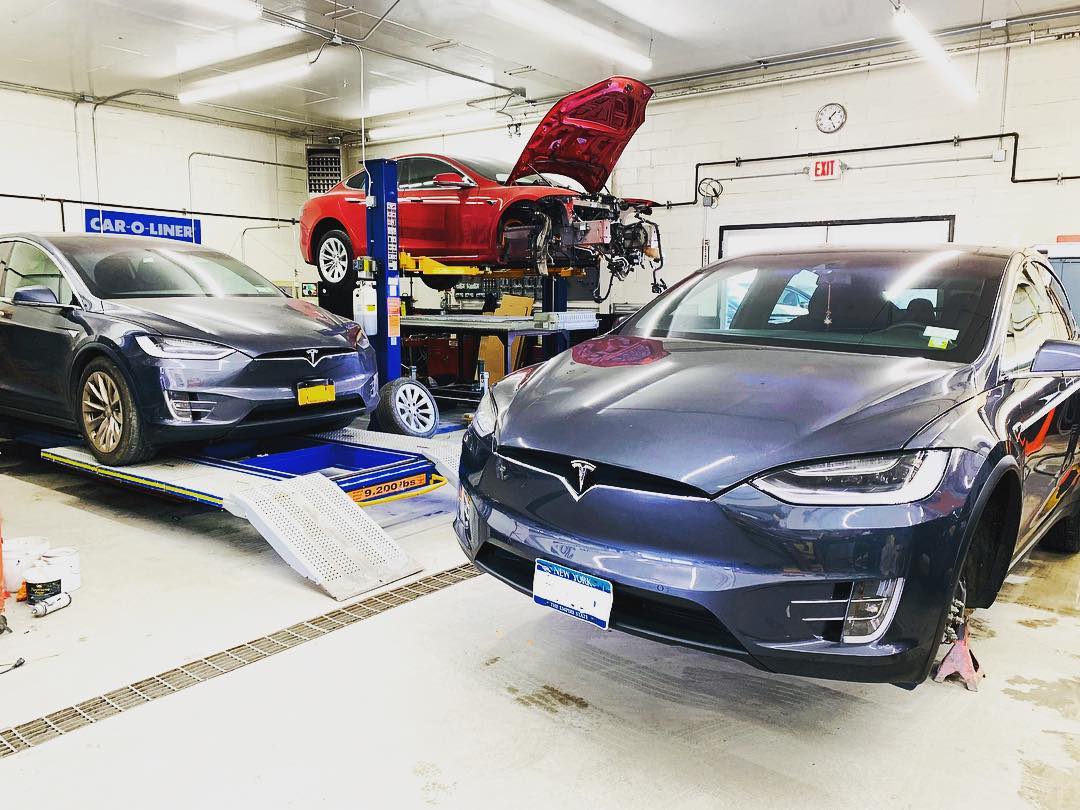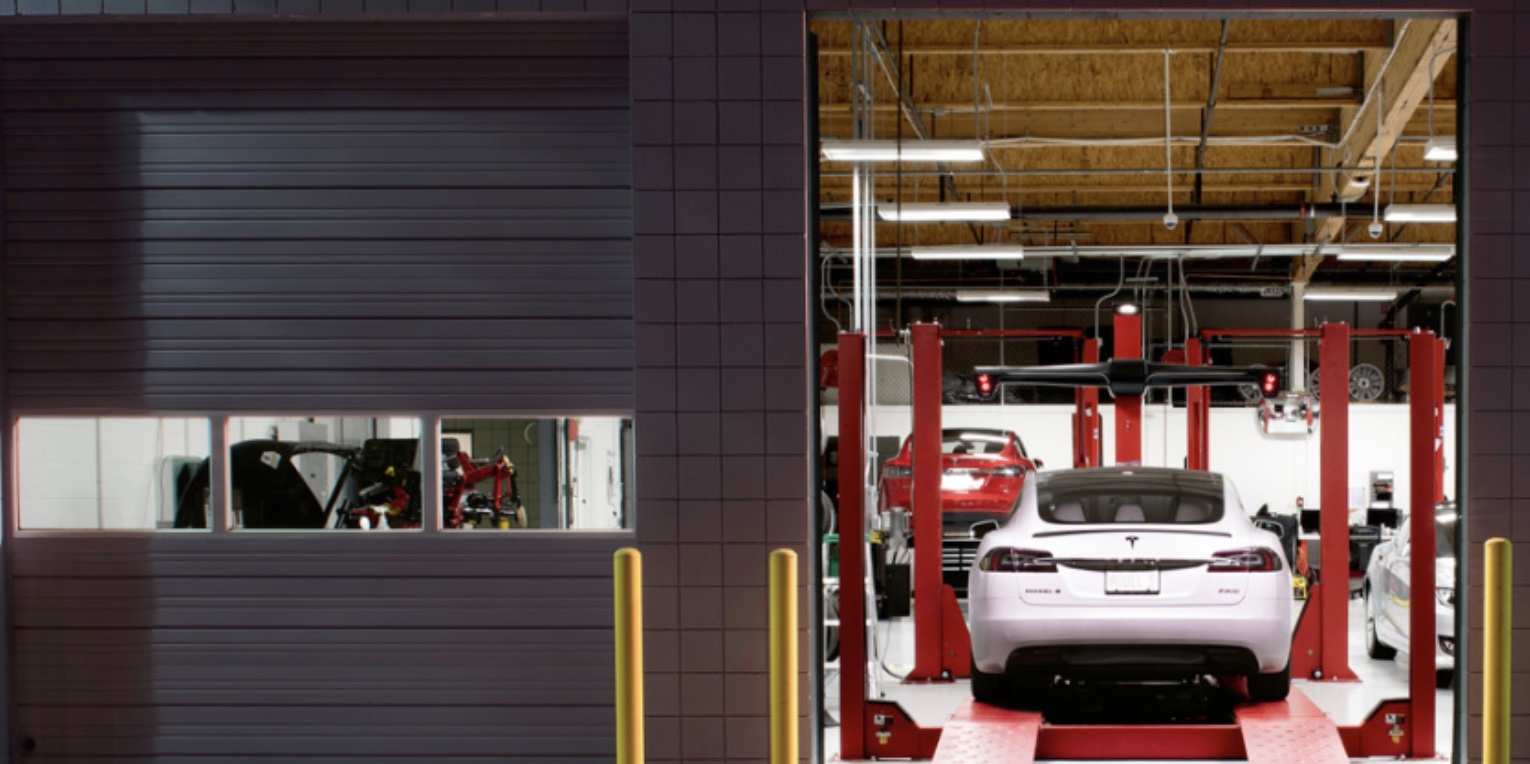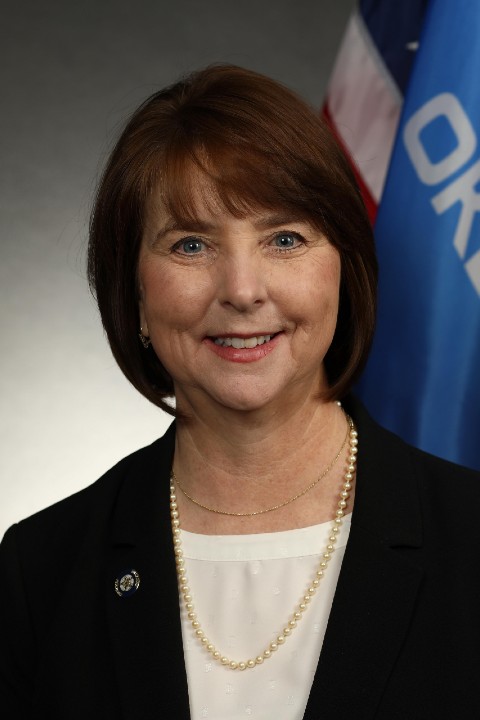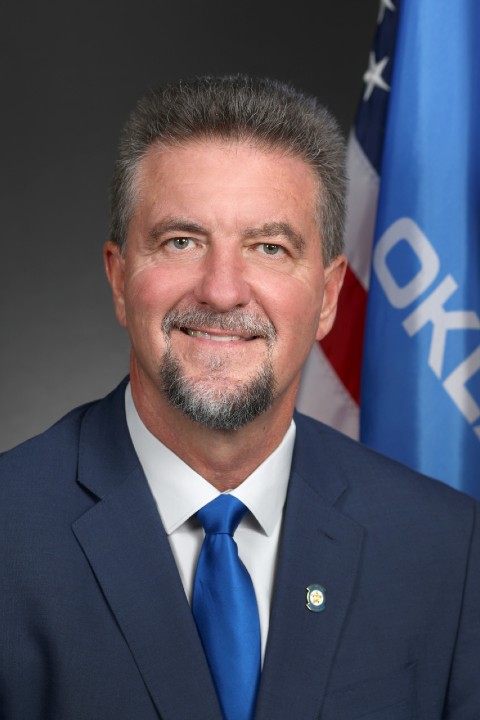

News
As OK’s anti-Tesla bill moves forward, its author believes a compromise is possible
The electric vehicle community in the United States took a collective gasp earlier this month when a proposed House Bill in Oklahoma unanimously passed a committee vote. The bill in question, HB 3994, aims to update and change parts of existing Oklahoma statutes related to the state’s auto industry. Now, this may sound harmless enough, but a look at the 70-page bill shows that companies like Tesla could lose out heavily if HB 3994 becomes law.
Tesla is already not allowed to directly sell its cars to consumers in Oklahoma, but HB 3994 could give the company even more headaches. What is particularly alarming with HB 3994’s language is the fact that it could be interpreted as a means to prevent automakers like Tesla from delivering and servicing vehicles in the state. This may result in Oklahoma-based Tesla owners being required to travel out of state just to have their vehicles serviced.
Tesla takes the bill very seriously, with the company urging owners on its Engage page to vote “No” to HB 3994. “If passed, this bill could force Tesla to close its existing locations in Oklahoma and prevent Tesla from shipping cars to anyone in the state, which would force locals to travel out-of-state to service their cars or pick up their new Tesla vehicles. Oklahoma should focus on increasing revenue and jobs in the state, not stifling competition and limiting consumer choice,” Tesla noted on its Engage page.
Oppositions and Risks
To state that Oklahoma-based Tesla owners are passionately trying to prevent HB 3994 from progressing further would be an understatement. Tesla owners are currently lobbying against the bill, with some even heading to the capitol last week to speak with the bill’s author, Representative Mike Dobrinski, who has an extensive background in the state’s auto sector. As per Dobrinski’s LinkedIn page, he was the Owner/Dealer of Dobrinski Chevrolet, Inc. until March 2017, and he was the Dealer/Owner of Dobrinski of Kingfisher, Inc., a Chevrolet-Buick-GMC dealership, until October 2018.
The Tesla owners’ talk with the Representative at the capitol last week was brief, according to information shared with Teslarati. Dobrinski highlighted the idea that HB 3994 is a way to protect Tesla owners in Oklahoma because if the EV maker refuses to cover its customers under warranty, then consumers will have no backup. Such a scenario seems unlikely, however.
It’s not just Tesla owners in the state who are against HB 3994. Oklahoma Senator Mary B. Boren, who drives a Tesla Model 3 herself, has openly criticized the bill. In a short conversation with Teslarati, Senator Boren noted that Oklahoma must let the product and the market decide if the state wants innovation to flourish. Initiatives such as HB 3994, which could result in automakers with no dealerships getting the short end of the stick, are counterproductive.
The Senator’s statements could very well ring true. Just recently, reports emerged that Tesla battery partner Panasonic has decided to acquire a factory site in the United States for the production of high-capacity lithium-ion batteries. Panasonic has reportedly shortlisted its preferred US locations to Oklahoma and Kansas. Senator Boren remarked that the presence of bills like HB 3994 could potentially discourage companies like Panasonic from investing in Oklahoma.
“If you have capitalistic laws being passed to protect a particular industry and their business model and to insulate them from the market demands that require them to adjust, then any innovative industry related to EVs will notice that — and they will notice that cronyism is at play. They will find friendlier environments,” Sen. Boren said.
Insights from HB 3994’s Author
The fact that HB 3994 unanimously passed a committee vote earlier this month shows that the bill is also seeing substantial support, despite its harsh repercussions on companies like Tesla and its local electric vehicle owners. When asked by Teslarati about the rationale behind the controversial bill, Rep. Dobrinski explained that HB 3994 is a request bill from the Oklahoma Auto Dealer Association.
“A request bill from the Oklahoma Auto Dealer Association, it seeks to strengthen the position of franchised dealers from the ever-increasing demands and requirements of their legacy manufacturers. Doing so requires addressing Direct Shippers, including Tesla, that are not currently regulated by the Oklahoma Motor Vehicle Commission like franchised dealers are. Proper legislation and regulation will ensure that existing service facilities may remain open and consumers will have additional protections,” Dobrinski noted.
Interestingly enough, the Representative admitted that while HB 3994 includes provisions that may be used to force Tesla into closing its service centers in the state, he does not expect that part of the bill to make it to HB 3994’s final iteration. “I do not expect that provision to be included in the (bill’s) final language,” Dobrinski later stated.
The Representative deserves praise for his honesty with HB 3994, though one may wonder why the controversial bill’s most heavy-handed provisions were included in the first place. When confronted by Tesla owners online, Dobrinski has maintained that HB 3994 is far from finished, but it has already opened the doors for communication among automotive businesses in the state.
“This bill, as introduced, is far from the finished product. It is forcing engagement from franchise auto dealers, legacy manufacturers, and new EV manufacturers, including Tesla. These folks are all talking now for the first time ever to work on a plan of regulation going forward that ensures competition and improves customer satisfaction under the purview of the Oklahoma Motor Vehicle Commission,” Dobrinski wrote.
A Price for Compromise?
Considering the statements of HB 3994’s author, it appears that the bill could partly be seen as a way to achieve a compromise of sorts between companies like Tesla, electric vehicle owners, and the state’s franchised auto dealerships. However, existing Tesla owners in Oklahoma fear that if HB 3994 passes into law, it could adversely affect not only their ownership experience but also their daily lives.
Cristen Winter Huber, a Tesla owner and a foster mother, is one of them. Being a foster mother, Huber is unable to take her foster children outside Oklahoma without a judge’s permission. According to Huber, the harsher portions of HB 3994 could effectively disrupt her family dynamic, and it might motivate her to leave the state.
“It’s not feasible for my family to drive out of state frequently. I’m a parent and foster parent. I have to get approval from a judge to take my foster child out of state. If I have to leave the state to service my car, I might as well move to a state that welcomes growth and innovation,” Huber said.
Jochen Hoppert, the President of the Tesla Owners Club of Oklahoma, noted that HB 3994 is not only a step in the wrong direction — it can have repercussions far beyond Tesla. The Tesla Club President also stated that so far, the EV maker’s service centers in Oklahoma City and Tulsa are proving that Tesla is serious about supporting its customers.

“Tesla is still not permitted to sell or deliver vehicles from those locations. We hope that will change in the future, yet this anti-competitive bill is clearly a step in the opposite direction. It’s worth noting that this move would not only negatively affect Tesla and the local Tesla community but other up-and-coming electric vehicle manufacturers wishing to do business in the state.
“Rep. Mike Dobrinski, the creator of this bill… has shared his perspective, which includes the notion that this bill would provide benefit to the consumer by allowing the state to manage the presence of warranty, service, and other such things for the consumer as required features of the electric vehicle marketplace. The Tesla service centers in Oklahoma City and Tulsa already demonstrate Tesla’s desire to provide its customers with such services,” Hoppert said.
Following its unanimous committee approval, House Bill 3994 has now advanced to the House Floor. But before the bill could become a law, the Oklahoma Governor would have to approve it first. With this in mind, Tesla owners and electric vehicle advocates still have some time to fight against the bill, or at least lobby for significant changes. Rep. Mike Dobrinski himself has been consistent with the idea that HB 3994 is still open for edits, so it may be a good idea for Tesla owners in the state to push their efforts even more from this point forward.
Those interested in speaking up and supporting Tesla’s efforts against Oklahoma’s HB 3994 could click here.
A copy of Oklahoma HB 3994 could be viewed below.
Hb3994 Int by Simon Alvarez on Scribd
Don’t hesitate to contact us with news tips. Just send a message to simon@teslarati.com to give us a heads up.
News
Tesla cleared in Canada EV rebate investigation
Tesla has been cleared in an investigation into the company’s staggering number of EV rebate claims in Canada in January.

Canadian officials have cleared Tesla following an investigation into a large number of claims submitted to the country’s electric vehicle (EV) rebates earlier this year.
Transport Canada has ruled that there was no evidence of fraud after Tesla submitted 8,653 EV rebate claims for the country’s Incentives for Zero-Emission Vehicles (iZEV) program, as detailed in a report on Friday from The Globe and Mail. Despite the huge number of claims, Canadian authorities have found that the figure represented vehicles that had been delivered prior to the submission deadline for the program.
According to Transport Minister Chrystia Freeland, the claims “were determined to legitimately represent cars sold before January 12,” which was the final day for OEMs to submit these claims before the government suspended the program.
Upon initial reporting of the Tesla claims submitted in January, it was estimated that they were valued at around $43 million. In March, Freeland and Transport Canada opened the investigation into Tesla, noting that they would be freezing the rebate payments until the claims were found to be valid.
READ MORE ON ELECTRIC VEHICLES: EVs getting cleaner more quickly than expected in Europe: study
Huw Williams, Canadian Automobile Dealers Association Public Affairs Director, accepted the results of the investigation, while also questioning how Tesla knew to submit the claims that weekend, just before the program ran out.
“I think there’s a larger question as to how Tesla knew to run those through on that weekend,” Williams said. “It doesn’t appear to me that we have an investigation into any communication between Transport Canada and Tesla, between officials who may have shared information inappropriately.”
Tesla sales have been down in Canada for the first half of this year, amidst turmoil between the country and the Trump administration’s tariffs. Although Elon Musk has since stepped back from his role with the administration, a number of companies and officials in Canada were calling for a boycott of Tesla’s vehicles earlier this year, due in part to his association with Trump.
News
Tesla Semis to get 18 new Megachargers at this PepsiCo plant
PepsiCo is set to add more Tesla Semi Megachargers, this time at a facility in North Carolina.

Tesla partner PepsiCo is set to build new Semi charging stations at one of its manufacturing sites, as revealed in new permitting plans shared this week.
On Friday, Tesla charging station scout MarcoRP shared plans on X for 18 Semi Megacharging stalls at PepsiCo’s facility in Charlotte, North Carolina, coming as the latest update plans for the company’s increasingly electrified fleet. The stalls are set to be built side by side, along with three Tesla Megapack grid-scale battery systems.
The plans also note the faster charging speeds for the chargers, which can charge the Class 8 Semi at speeds of up to 1MW. Tesla says that the speed can charge the Semi back to roughly 70 percent in around 30 minutes.
You can see the site plans for the PepsiCo North Carolina Megacharger below.

Credit: PepsiCo (via MarcoRPi1 on X)

Credit: PepsiCo (via MarcoRPi1 on X)
READ MORE ON THE TESLA SEMI: Tesla to build Semi Megacharger station in Southern California
PepsiCo’s Tesla Semi fleet, other Megachargers, and initial tests and deliveries
PepsiCo was the first external customer to take delivery of Tesla’s Semis back in 2023, starting with just an initial order of 15. Since then, the company has continued to expand the fleet, recently taking delivery of an additional 50 units in California. The PepsiCo fleet was up to around 86 units as of last year, according to statements from Semi Senior Manager Dan Priestley.
Additionally, the company has similar Megachargers at its facilities in Modesto, Sacramento, and Fresno, California, and Tesla also submitted plans for approval to build 12 new Megacharging stalls in Los Angeles County.
Over the past couple of years, Tesla has also been delivering the electric Class 8 units to a number of other companies for pilot programs, and Priestley shared some results from PepsiCo’s initial Semi tests last year. Notably, the executive spoke with a handful of PepsiCo workers who said they really liked the Semi and wouldn’t plan on going back to diesel trucks.
The company is also nearing completion of a higher-volume Semi plant at its Gigafactory in Nevada, which is expected to eventually have an annual production capacity of 50,000 Semi units.
Tesla executive teases plan to further electrify supply chain
News
Tesla sales soar in Norway with new Model Y leading the charge
Tesla recorded a 54% year-over-year jump in new vehicle registrations in June.

Tesla is seeing strong momentum in Norway, with sales of the new Model Y helping the company maintain dominance in one of the world’s most electric vehicle-friendly markets.
Model Y upgrades and consumer preferences
According to the Norwegian Road Federation (OFV), Tesla recorded a 54% year-over-year jump in new vehicle registrations in June. The Model Y led the charge, posting a 115% increase compared to the same period last year. Tesla Norway’s growth was even more notable in May, with sales surging a whopping 213%, as noted in a CNBC report.
Christina Bu, secretary general of the Norwegian EV Association (NEVA), stated that Tesla’s strong market performance was partly due to the updated Model Y, which is really just a good car, period.
“I think it just has to do with the fact that they deliver a car which has quite a lot of value for money and is what Norwegians need. What Norwegians need, a large luggage space, all wheel drive, and a tow hitch, high ground clearance as well. In addition, quite good digital solutions which people have gotten used to, and also a charging network,” she said.
Tesla in Europe
Tesla’s success in Norway is supported by long-standing government incentives for EV adoption, including exemptions from VAT, road toll discounts, and access to bus lanes. Public and home charging infrastructure is also widely available, making the EV ownership experience in the country very convenient.
Tesla’s performance in Europe is still a mixed bag, with markets like Germany and France still seeing declines in recent months. In areas such as Norway, Spain, and Portugal, however, Tesla’s new car registrations are rising. Spain’s sales rose 61% and Portugal’s sales rose 7% last month. This suggests that regional demand may be stabilizing or rebounding in pockets of Europe.
-

 Elon Musk2 weeks ago
Elon Musk2 weeks agoTesla investors will be shocked by Jim Cramer’s latest assessment
-

 Elon Musk2 days ago
Elon Musk2 days agoxAI launches Grok 4 with new $300/month SuperGrok Heavy subscription
-

 Elon Musk4 days ago
Elon Musk4 days agoElon Musk confirms Grok 4 launch on July 9 with livestream event
-

 News1 week ago
News1 week agoTesla Model 3 ranks as the safest new car in Europe for 2025, per Euro NCAP tests
-

 Elon Musk2 weeks ago
Elon Musk2 weeks agoA Tesla just delivered itself to a customer autonomously, Elon Musk confirms
-

 Elon Musk1 week ago
Elon Musk1 week agoxAI’s Memphis data center receives air permit despite community criticism
-

 News2 weeks ago
News2 weeks agoXiaomi CEO congratulates Tesla on first FSD delivery: “We have to continue learning!”
-

 Elon Musk2 weeks ago
Elon Musk2 weeks agoTesla scrambles after Musk sidekick exit, CEO takes over sales
















